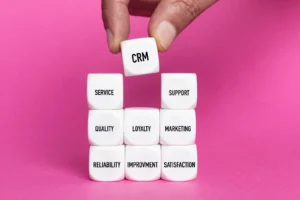In the realm of business processes, integrations and automations emerge as pivotal concepts, particularly within the domain of crm software for financial advisors. As organizations increasingly prioritize effective customer engagement to maintain competitiveness and cultivate enduring client relationships, the integrations and automations of CRM systems stand out as a key strategy.
Implementing integrations and automations for customer engagement embody a strategic endeavor where businesses seamlessly link their CRM platforms with diverse software systems to streamline operations, improve data management, and deliver personalized, efficient customer experiences. This comprehensive approach not only consolidates customer data but also harnesses automation tools to optimize interactions across the entire customer journey, spanning from initial outreach to ongoing support. This integrated way aims to drive engagement, satisfaction, and loyalty among customers. Therefore, examining the advantages, tactics, and best practices of CRM integrations and automations holds significant importance for businesses aiming to enhance their customer engagement strategies and achieve sustainable growth amidst today’s competitive landscape.
What Are CRM Integrations?
Integrations are a fundamental process that entails linking various systems, applications, or platforms to operate harmoniously and exchange data effectively. Specifically within the realm of Customer Relationship Management (CRM) software, integration plays a crucial role in facilitating connectivity between the CRM system and other software applications or systems utilized within an organization. These integrations may encompass a wide range of tools and platforms, including but not limited to marketing tools, email marketing platforms, financial planning software, and portfolio management systems. By integrating these disparate systems, businesses can ensure a seamless flow of information across different departments, enabling enhanced collaboration and data-driven decision-making.
The integration of CRM software with other systems enables businesses to leverage the functionalities of multiple platforms in tandem, thereby maximizing the utility and effectiveness of their CRM solution. For example, integrating CRM with marketing tools allows businesses to automate lead generation, nurturing, and conversion processes by seamlessly transferring customer data and insights between the two systems. Similarly, integrating CRM with email marketing platforms facilitates targeted and personalized communication with customers by leveraging CRM data to send tailored email campaigns. Furthermore, integrating CRM with financial planning or portfolio management software enables organizations to gain a comprehensive view of customer financial data, investment portfolios, and financial goals, thereby enhancing the quality of financial advisory services and fostering stronger client relationships.
In essence, integration empowers businesses to harness the collective capabilities of different software systems, optimizing processes, enhancing data accuracy, and improving overall operational efficiency. By seamlessly connecting CRM software with various other platforms and applications, organizations can unlock new opportunities for collaboration, innovation, and customer engagement, ultimately driving business growth and success in today’s dynamic market landscape.
Case Study: GReminders
Greminders is a software solution designed to streamline appointment scheduling and reminders. It addresses the common challenge of missed appointments and inefficient scheduling processes by sending reminders and facilitating seamless communication between service providers and clients.
The Greminders integration allows users to take advantage of the Greminders platform by setting up automated reminders for appointments, meetings, or events via various communication channels such as text messages, emails, or phone calls. These reminders can be customized to suit individual preferences and schedules, ensuring that clients receive timely notifications and are less likely to forget or miss their appointments. Additionally, the software offers features like calendar integration, appointment confirmations, and rescheduling options, simplifying the entire appointment management process for both service providers and clients.
One of my favorite integration features is the ability to trigger practice management features such as workflows.
Redtail Technology Integration Partners
Wealthbox CRM integration Partners
What Are The Benefits Of Integrations?
Integrations between software systems offer a myriad of benefits, enhancing efficiency, productivity, and overall operational effectiveness within organizations. Streamlined data flow is a significant advantage of integrations. By linking disparate systems, data can seamlessly move between them, eliminating the need for manual data entry or the risk of errors associated with manual transfers. This not only saves time but also ensures data accuracy, as information is consistently updated across platforms in real-time.
By integrating customer-facing systems such financial planning software or document generation software, organizations can provide a cohesive experience throughout the customer journey. For instance, integrating a Client Data Gathering software enables a personalized form to be sent to a client to retrieve information. This personalized approach builds trust with prospects and clients alike.
What Are CRM Automations?
Automation refers to the utilization of technology to execute repetitive tasks, processes, or workflows automatically, without requiring manual intervention. In the realm of CRM software, automation plays a pivotal role in optimizing various facets of business operations, spanning customer interactions, marketing initiatives, sales processes, and customer support endeavors.
For instance, a workflow is a sequence of interconnected steps or tasks that are undertaken to complete a specific process or achieve a particular goal within an organization. Workflows outline the series of actions, decisions, and interactions involved in carrying out a task or project, typically from initiation to completion. They often involve the assignment of responsibilities, the flow of information or materials between individuals or departments, and the adherence to predefined procedures or guidelines. These automated steps ensure nothing slips through the cracks.
Automation Examples in Redtail
Automation Examples in Wealthbox
What Are The Benefits Of Automations?
CRM automations offer a plethora of benefits for businesses seeking to streamline their operations, enhance customer experiences, and drive growth. Firstly, increased efficiency is a notable advantage of CRM automations. By automating repetitive tasks such as data entry, lead assignment, follow-up reminders, and email communication, businesses can save valuable time and resources, allowing employees to focus on more strategic activities. This efficiency boost leads to improved productivity across the organization, enabling teams to accomplish more in less time and ultimately contributing to the bottom line.
Secondly, CRM automations facilitate enhanced data management and accuracy. With automated data capture and updates, businesses can ensure that their CRM system is constantly updated with the latest information about leads, customers, and interactions. This real-time data synchronization minimizes the risk of errors associated with manual data entry and ensures that teams have access to accurate and up-to-date information when making decisions or engaging with customers. Additionally, automations can help maintain data integrity by enforcing standardized processes for data entry and validation, leading to a more reliable database.
Furthermore, CRM automations enable personalized and timely customer experiences. By leveraging automation tools for tasks, businesses can deliver relevant and timely communications to their customers. This personalized approach fosters stronger relationships with customers, increases engagement, and enhances customer satisfaction. Additionally, automations can help businesses stay responsive to customer inquiries and needs by ensuring prompt follow-ups and timely resolutions, thereby improving overall customer experience and loyalty.
CRM automations should be utilized to streamline processes, improve efficiency, and enhance customer experiences. By automating repetitive tasks such as data entry, lead management, and other workflows, businesses can save time and resources while minimizing the risk of errors. This increased efficiency allows teams to focus on more strategic activities, ultimately driving productivity and effectiveness. Moreover, CRM automations enable personalized and timely interactions with customers, leading to improved engagement, satisfaction, and loyalty. Overall, leveraging CRM automations empowers businesses to optimize their operations, strengthen customer relationships, and achieve sustainable growth in today’s competitive market landscape.
CRM Integrations & Automations: Maximize Your CRM Software
In conclusion, the strategic implementation of CRM integrations and automations presents a transformative opportunity for businesses to optimize their customer relationship management processes. By seamlessly connecting their CRM software with various other systems and leveraging automation tools, organizations can streamline operations, enhance data accuracy, and deliver personalized customer experiences. Integrations enable the consolidation of data from disparate sources, fostering a comprehensive understanding of customer interactions and facilitating informed decision-making across departments. Moreover, automations drive efficiency by automating repetitive tasks and workflows, freeing up valuable time for employees to focus on strategic initiatives and customer engagement.
Ultimately, the integration of CRM software with essential systems and the implementation of automation tools empower businesses to unlock new levels of efficiency and effectiveness in managing customer relationships. By centralizing data, streamlining processes, and delivering personalized experiences, organizations can strengthen customer loyalty, drive growth, and maintain a competitive edge in today’s dynamic market landscape. As businesses continue to prioritize customer-centric strategies, harnessing the full potential of CRM integrations and automations remains essential for achieving sustainable success and fostering long-term relationships with customers.




